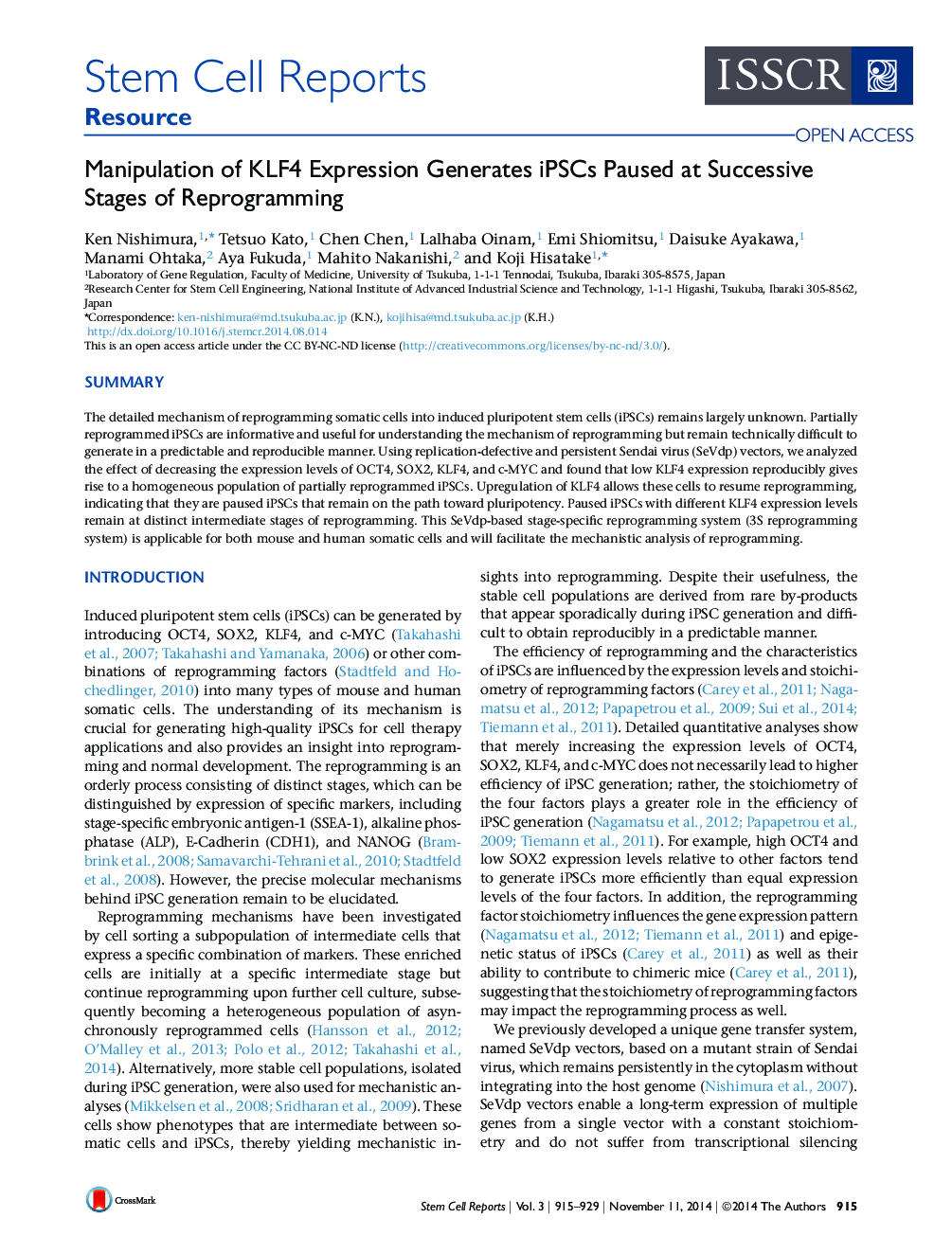| کد مقاله | کد نشریه | سال انتشار | مقاله انگلیسی | نسخه تمام متن |
|---|---|---|---|---|
| 2093337 | 1081953 | 2014 | 15 صفحه PDF | دانلود رایگان |

• Reducing KLF4 expression generates partially reprogrammed cells
• Different KLF4 levels produce iPSCs stably paused at distinct stages of reprogramming
• Upregulation of KLF4 allows paused iPSCs to resume reprogramming
• Homogenous populations of paused iPSCs are generated predictably and reproducibly
SummaryThe detailed mechanism of reprogramming somatic cells into induced pluripotent stem cells (iPSCs) remains largely unknown. Partially reprogrammed iPSCs are informative and useful for understanding the mechanism of reprogramming but remain technically difficult to generate in a predictable and reproducible manner. Using replication-defective and persistent Sendai virus (SeVdp) vectors, we analyzed the effect of decreasing the expression levels of OCT4, SOX2, KLF4, and c-MYC and found that low KLF4 expression reproducibly gives rise to a homogeneous population of partially reprogrammed iPSCs. Upregulation of KLF4 allows these cells to resume reprogramming, indicating that they are paused iPSCs that remain on the path toward pluripotency. Paused iPSCs with different KLF4 expression levels remain at distinct intermediate stages of reprogramming. This SeVdp-based stage-specific reprogramming system (3S reprogramming system) is applicable for both mouse and human somatic cells and will facilitate the mechanistic analysis of reprogramming.
Graphical AbstractFigure optionsDownload as PowerPoint slide
Journal: - Volume 3, Issue 5, 11 November 2014, Pages 915–929